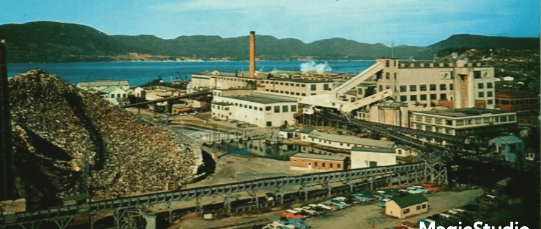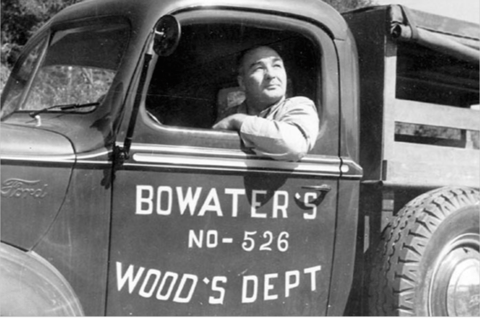Bowater Pulp and Paper
The Worlds Largest Pulp and Paper Company
Wayne Bowater
At one time the worlds largest, the origins of Bowater Pulp and Paper trace back to 1910, when William Vansittart Bowater, alongside three of his sons, established W.V. Bowater and Sons as a paper wholesaler and agency. The Bowater family ventured into paper manufacturing with the construction of a paper mill to the east of London, in Northfleet, initiating operations in 1926. This endeavor expanded with the addition of a mill in Ellesmere Port in 1931, followed by the acquisition of two additional mills in England in 1936.
Eric Bowater (pictured on our Homepage with Queen Elizabeth), a grandson of William, joined the enterprise in 1921 and rapidly ascended within the company, spearheading acquisitions that propelled Bowater to the forefront of the newsprint industry in Europe. In 1938, the company expanded its operations to North America by acquiring the Corner Brook newsprint mill in Newfoundland, Canada, from International Paper. This mill was later sold to Kruger in 1984, its present owner.
Bowater made its first foray into the United States in Calhoun, Tennessee, where it began the production of kraft pulp and newsprint in 1954, with some of the pulp being transported back to the United Kingdom to support the company's newsprint mills there.
The Mersey newsprint mill, located in Brooklyn, Nova Scotia, was established in 1929 by the affluent Montréal financier Izaak Killam, around the time of the Wall Street crash. Despite economic challenges, the mill remained profitable throughout the 1930s, a period during which many of its competitors struggled, and was acquired by Bowater in 1956 from Killam’s widow. The company ensured the mill's operation by creating a reservoir, Lake Rossignol, through the damming of the Mersey River at Indian Gardens, about 30 km upstream. This period also saw the creation of the Bowater Shipping Company to manage the transportation of its paper and pulp wood products.
Bowater's expansion in the U.S. continued with the establishment of a second facility in Catawba, South Carolina, which started producing kraft pulp in 1959 and lightweight coated paper (LWC) in 1962. This marked the first production of LWC from southern pine fibers, introducing new challenges that were successfully overcome, earning the paper a reputation for being among the highest quality coated sheets in the market.
The company underwent several changes in its corporate structure and ownership, with the parent company's name evolving to AbitibiBowater Inc in 2007 and later to Resolute Forest Products in November 2011.



